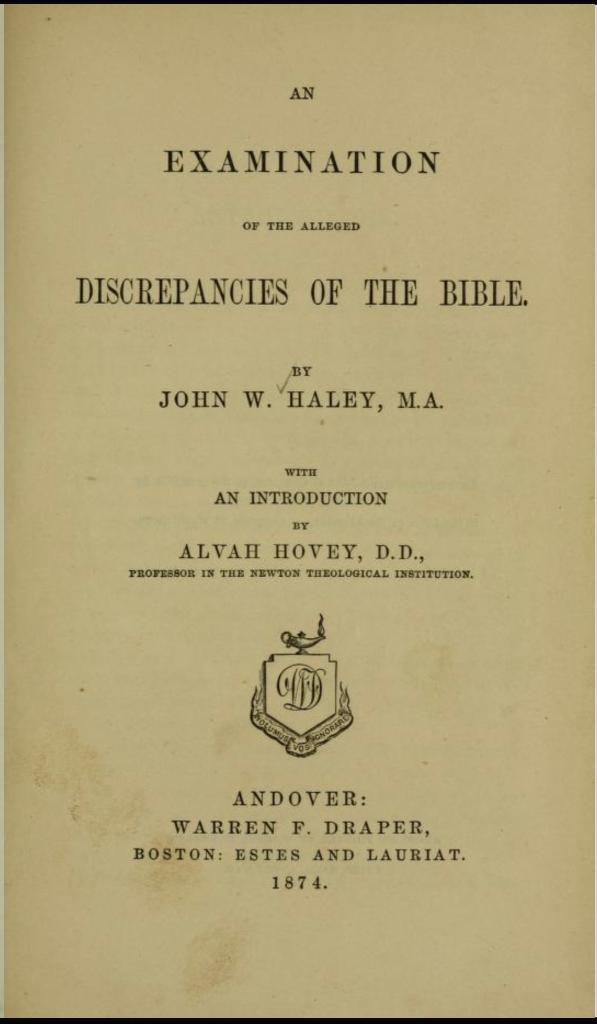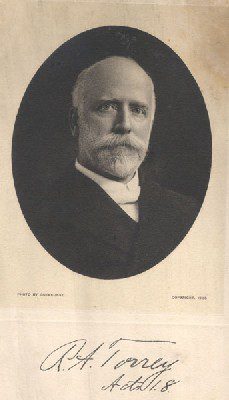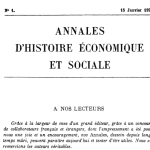Jews and Christians have long wrestled with the Bible passages that command the annihilation of rival races, notably the Canaanites and Amalekites. As I have noted, those passages proved very useful for the new and aggressive kinds of Euro-American colonialism that emerged in the nineteenth century. Even more pernicious was the merger of those Biblical ideas with emerging eugenic theories, which postulated the existence of degenerate “damned races.” Well into the twentieth century, Christian apologists defended the Biblical texts, and in so doing reached some terrifying conclusions.
At least by the 1860s, Protestant preachers were regularly framing their arguments in biological or medical terms, comparing the Bible’s damned races to a cancer or tumor that had to be removed for the sake of the healthy organism. In 1867, popular London preacher Jonathan Bayley suggested that the Canaanites
had fallen into such polluting abomination, such foul, loathsome and detestable wickedness that no reformation was possible. Hence they needed to be exterminated for the good of mankind. they were like incurable ulcers in the great body of humanity and to save the race these must be cut off. The Israelites were the executioners of providence. . . . the good of the human race required the extirpation of a tribe too vile to be continued.
A few years later, Massachusetts clergyman John W. Haley produced his Examination of the Alleged Discrepancies of the Bible, a tract that still continues to be reprinted.
Haley agreed that the evil races of the Bible were so bad that any reasonable society would have felt the need to wipe them out. For the Amalekites, the destruction had to be total, down to the last toddler:
Besides, had the women and children been spared, there would soon have been a fresh crop of adult Amalekites, precisely like their predecessors. Or suppose merely the children had been saved; if left to care for themselves they must have miserably perished of starvation; if adopted and reared in Israelite families they might, from their hereditary disposition and proclivities to evil have proved a most undesirable and pernicious element in the nation. It was, doubtless, on the whole, the best thing for the world that the Amalekite race should be exterminated.
The most popular apologist in the Anglo-American world was the revivalist R. A. Torrey. Among other achievements, it was this Reuben Torrey who co-edited the collection of conservative theological essays known as The Fundamentals, which gave its name to the whole Fundamentalist movement. In 1900, he published an analysis of Difficulties and Alleged Errors and Contradictions in the Bible, which was intended to give ordinary believers an arsenal of arguments with which to defend themselves against liberal and rationalist critics, against “infidels.” The book is invaluable for what it tells us about the nature of theological debate at this time, the kind of anti-religious arguments pressed by street orators, village atheists, and radical pamphleteers. Reading the book, we can almost hear the arguments that preachers and secularists shouted against each other, probably to the delight of watching crowds.
Among the obvious difficulties that Torrey needed to explain: “The Antiquity of Man According to the Bible and According to Science,” “Joshua Commanding the Sun to Stand Still,” and, of course, “The Wholesale Slaughter of the Canaanites by God’s Command.” This last issue posed a significant stumbling block to faith. As Torrey admitted,
there are few things in the Bible over which more intelligent readers have stumbled, and over which infidels have more frequently gloated and gloried, than God’s command that certain people should be utterly exterminated, sparing neither sex nor age. . . . How can we reconcile any such appallingly harsh commands as these with the doctrine so plainly taught in the New Testament that God is love?
Torrey turned back to Augustine and Calvin in asserting that God the Creator can rule as he wishes, and rather than blame God, we should be grateful that he does not visit on us modern-day sinners the fate he inflicted on the Canaanites. Moreover, these ancient people really were singularly vicious. Wholesale massacres are appalling, yes:
But there is something even more appalling than this. that is that the iniquity of any people should have become so full, their rebellion against God so strong and so universal, their moral corruption and debasement so utter and so pervasive, even down to babes just born, as to make such treatment absolutely necessary in the interests of humanity. [The Canaanites] had become a moral cancer threatening the very life of the whole human race. that cancer must be cut out in every fiber if the body was to be saved. Cutting out a cancer is a delicate operation, but often it is the kindest thing a surgeon can do under existing circumstances. the kindest thing that God could do for the human race was to cut out every root and fiber of these grossly wicked people.
That certainly meant killing the women, for “depraved women are more dangerous than depraved men.”
His argument meshed precisely with the language of the eugenic movement, which was then at its height:
anyone who has had experience with the children of the depraved knows how persistently the vices bred for generations in the ancestors reappear in the children even when they are taken away from their evil surroundings and brought up in the most favorable environment.
Canaanite children were just bad seed. Torrey’s conclusion is still jaw-dropping.
the extermination of the Canaanite children was not only an act of mercy and love to the world at large; it was also an act of love and mercy to the children themselves. . . . even today, I could almost wish that all the babies born in the slums might be slain in infancy, were it not for the hope that the church of Christ would awake and carry to them the saving gospel of the Son of God.
“I could almost wish that all the babies born in the slums might be slain in infancy…” Contemplating those texts of terror could lead to some frightful conclusions.















